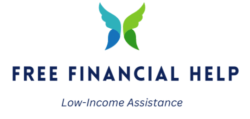These programs provide essential financial support to vulnerable populations, such as those with disabilities or low-income families.
TABLE OF CONTENTS
Safety Net Programs
These programs offer different types of benefits. For example, Social Security provides monthly retirement income payments and disability insurance. Medicaid and Medicare offer access to medical services, such as hospitalization and routine doctor visits. TANF is designed to help needy families by providing cash assistance for food, clothing, and housing.
SNAP delivers nutritional services for low-income families, while WIC helps pregnant women and young children receive nutritious foods. CHIP offers health coverage for uninsured kids under 19 from low-income households. LIHEAP provides financial assistance to help cover home energy costs. In contrast, SSI allows people with disabilities or those over 65 with limited income to get monthly payments.
- Social Security
- Medicaid
- Medicare for medical services,
- TANF cash assistance provides families with food, clothing, and housing support
- SNAP nutritional aid for low-income households. For additional nutrition needs,
- WIC serves pregnant women or young children.
- CHIP provides health coverage options for kids under 19 from less fortunate backgrounds struggling with uninsured costs at home can get access to
- LIHEAP’s energy subsidies.
- SSI helps people with disabilities or over 65 receive monthly payments if their income qualifies them
How to Qualify for a Safety Net Program
To be eligible for any of these safety net programs, you’ll need to meet specific criteria set by the program administrators. If you are low-income, or your gross family income is at or below the US Poverty Guidelines, you qualify for one of the Safety Net programs. Once approved, you’ll start to receive benefits in the form of cash payments or medical coverage, depending on the program.
If you may be eligible for a safety net program, don’t hesitate to reach out and get the help you need. Taking advantage of these programs can provide much-needed support in times of difficulty.
Safety Net Assistance (SNA)
Safety Net Assistance (SNA) provides financial assistance to eligible needy individuals and families who do not qualify for Family Assistance.
- Unmarried adults
- Families without children
- Children not living with family.
- Families of persons with substance abuse issues
- Families of persons with substance abuse issues refusing treatment
Recipients of Safety Net Assistance able to work must also comply with work requirements to receive SNAP.
Generally, you can receive cash benefits for up to two years. If help is needed in the future, participants receive financial aid. Still, payments are made directly to the utility companies, landlords, etc. Non-cash assistance is given to:
- Families of persons with substance abuse issues
- Families of persons with substance abuse issues refusing treatment.
- Recipients with an adult in the household who has past the 60-month lifetime time limit.
Determine Eligibility Criteria For Safety Net Assistance Programs
Before applying for any safety net assistance program, please determine if you are eligible. Most programs have basic income requirements that applicants must meet. The most common eligibility criteria include income, age, residency status, and household size. For example, programs such as Medicaid and SNAP (Supplemental Nutrition Assistance Program) require applicants to have a low income.
The food assistance program, or Supplemental Nutrition Assistance Program (SNAP), provides cash on an EBT card to purchase groceries. Other programs, such as TANF (Temporary Assistance for Needy Families), require applicants to have dependent children under 18 years old in their household.
In addition, some programs may require U.S. citizenship or lawful permanent residents. To determine your eligibility for safety net assistance programs, visit the program’s website or contact a local government agency that assists with applications.
Temporary Assistance for Needy Families
TANF is a federal- and state-funded cash assistance program for families with children with meager incomes.
To receive TANF, you must be a U.S. citizen or a qualified non-citizen. Have all necessary documents, such as pay stubs, tax returns, birth certificates for everyone in the household, lease agreements, utility bills, and identification documents, before starting the application process.
Have All Documentation Needed to Apply
When applying for safety net assistance programs, gathering all the required documentation and information beforehand, such as pay stubs, tax returns, lease agreements, utility bills, and identification documents, is crucial. Having everything your need to apply will increase your chances of being approved for assistance.
Apply for the assistance program you need and research the required documents and information. Provide proof of income, address, social security number, household size, and expenses such as rent or utilities. Everything must be validated.
Submit Application
I’ve finished the application and submitted it with the necessary documents in person or by mail. If applying online, carefully follow the instructions and upload all required documents. Apply in person, bring all necessary documentation, and be prepared for a possible wait time. If applying by mail, double-check that you have included all required forms and documentation.
After you submit your application, I want to follow up on its status. You can check on your application online or by calling the customer service line. Please respond to requests for further information or documentation as soon as possible to ensure the approval process is completed on time. Remember that these programs have limited funding, and a decision may not be made directly.
In Conclusion
Programs are available to help families with difficulties making ends meet. I have for you here the essential information for families needing help. It provides tailored and flexible support to ensure those struggling with finances can access essential services while figuring out the next steps required to maintain family stability. If you need help, please follow the information steps above.
Recent Posts
It's not always easy to find free mental health services nearby. Still, some groups offer free and confidential counseling, along with overall support for emotional health, especially for those...
Prayer for a Financial Breakthrough may seem strange for a financial help website. However, when you think about it, prayer is one of the best things you can do when you need help. No matter what...


